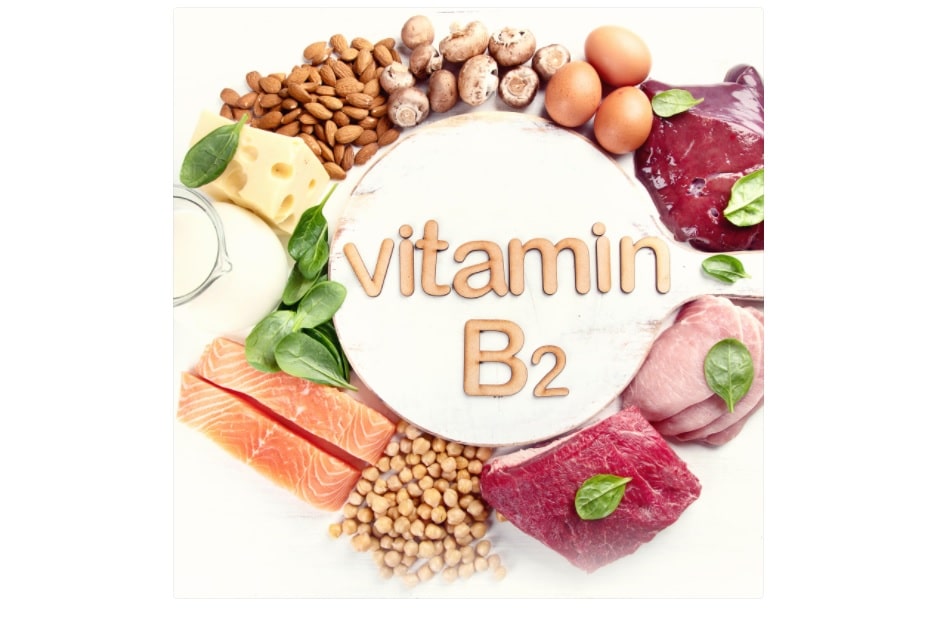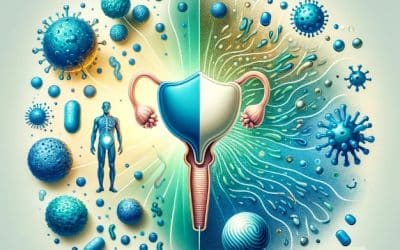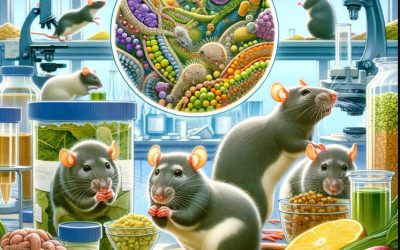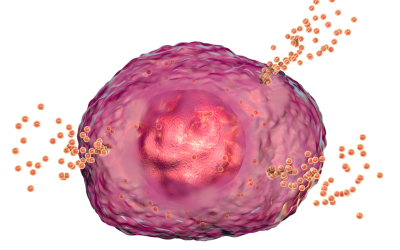Mitochondria are the energy producing organelles in eukaryotic cells that produce ATP through the process of oxidative phosphorylation. Riboflavin acts as precursor to FMN and FAD which are involved in important regulatory pathways of mitochondria, such as metabolism of amino acids, fatty acids, purines and redox reactions essential for normal cellular growth and development. Mitochondria rely significantly on flavoenzymes, which are dependent on biologically active FAD (flavin dinucleotide) or FMN (flavin mononucleotide) derived from riboflavin (a water soluble vitamin) (Udhayabanu et al., 2017). Riboflavin is also considered a vital component of mitochondrial energy production mediated by the electron transport chain (ETC). In the ETC, FMN acts as a co-factor for NADH-Conenzyme Q reductase which catalyzes the conversion of NADH to CoQ in complex I. FAD is involved in the activity of complex II where it acts as an electron carrier and cofactor for succinate dehydrogenase, which catalyzes the conversion of succinate to fumarate in the Kreb’s cycle and oxidative phosphorylation (Udhayabanu et al., 2017). Defects in the ETC can produce free radical superoxide, hydrogen peroxide, nitric oxide, and highly reactive hydroxyl radicals, inducing membrane lipid peroxidation and DNA damage. Exposure to ROS can damage nuclear and mitochondrial DNA, that can eventually lead to mitochondrial-associated neurodegenerative disorders.
Riboflavin deficiency can contribute to the following:
- Impairment of liver, spleen, kidney and cardiac muscle in which riboflavin is stored in the form of FAD
- Energy depletion and decrease in riboflavin kinase activity that leads to the insufficient conversion of riboflavin into flavocoenzyme that can result in cataracts, preeclampsia, cancer and neurological disorders
- Defect in oxidative phosphorylation that can result in impaired oxidative metabolism and diminished energy production that can lead to neurological disorders.
- Riboflavin deficiency compromise oxidant defense mechanisms. The intracellular ratio of reduce glutathione (GSH): oxidized glutathione is maintained by an FAD-dependent glutathione reductase.
- Riboflavin deficiency can diminish the glutathione reductase activity that diminishes the GSH that serves as a substrate for glutathione peroxidase and glutathione S-transferase. “Thus, riboflavin nutritional status impacts directly on maintaining lipid metabolism, energy metabolism, redox balance, and metabolizing drugs and xenobiotic substances” (Pinto,2016)
References
Pinto, J. T., & Zempleni, J. (2016). Riboflavin. Advances in nutrition (Bethesda, Md.), 7(5), 973–975. https://doi.org/10.3945/an.116.012716
Udhayabanu, T., Manole, A., Rajeshwari, M., Varalakshmi, P., Houlden, H., & Ashokkumar, B. (2017). Riboflavin Responsive Mitochondrial Dysfunction in Neurodegenerative Diseases. J Clin Med, 6(5). doi:10.3390/jcm6050052








